On Tuesday, Nov. 10, members will consider a resolution to establish a reparations fund with $1 million. As of Nov. 6, meeting documents did not indicate where the money would come from or what initiatives would be funded first.
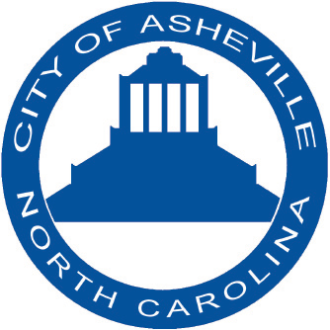

On Tuesday, Nov. 10, members will consider a resolution to establish a reparations fund with $1 million. As of Nov. 6, meeting documents did not indicate where the money would come from or what initiatives would be funded first.
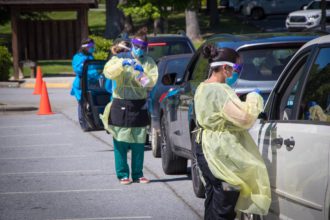
Amid internal upheaval following the sudden departure of CEO Antony Chiang, the COVID-19 pandemic and economic uncertainty, the $1.5 billion foundation held its first annual meeting virtually on Oct. 28. Highlights included funding updates and a discussion about organizational transparency.

On Oct. 29, North Carolina set a new record for the most COVID-19 cases reported in a single day at 2,885. The following two days recorded 2,809 and 2805 new infections, respectively, both higher totals than were reported for any day prior to Oct. 29. The seven-day rolling average of cases is now over 2,200, up from about 1,800 at the start of October.

Two work sessions have brought Asheville City Council members a little closer to agreement on an approach to hotels. And with the city’s hotel development moratorium set to expire on Tuesday, Feb. 23, time is running out to craft a plan.

Community members generally applauded the decision as a step in the right direction. But the newly approved resolution exempts property under contract to be sold to White Labs, a move commenters found disheartening.

From breweries to clothing lines, businesses are clamoring to address internal biases and racism in the workplace. As inquiries pour in, local equity consultants Marisol Jiménez and Tamiko Ambrose Murray are busier than ever.

Asheville’s infamous “Pit of Despair” may soon move one step closer to redevelopment. At Asheville City Council’s meeting of Tuesday, Oct. 27, members will review — and potentially approve — a concept plan for two city-owned parcels located at 68 Haywood Street and 37 Page Avenue.
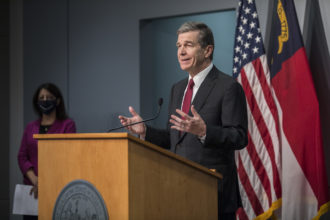
Instead of reimposing additional statewide restrictions — something Gov. Roy Cooper has repeatedly said he wants to avoid unless absolutely necessary — the governor asked local law enforcement agencies to “enhance prevention efforts.”

Asheville native Kalesha Ruth returns to the mountains to start her own used car dealership specializing in low down payments. To her knowledge, she’s the first Black women to own a car dealership in Western North Carolina.

For the second day in a row, North Carolina set a record for the most COVID-19 cases reported in a single day. With numbers rising both across the state and in Buncombe County, here’s what you need to know about the coronavirus as the weekend approaches.
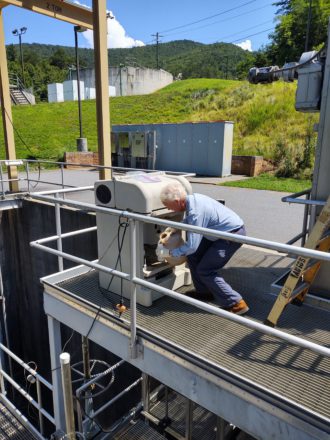
A team of Jackson County researchers found that wastewater collected in rural areas can be used to track COVID-19 outbreaks up to a week before a patient tests positive. Now, they’re hoping to expand the study across the region.

Zoning may not deliver the same zing as other hot-button issues in a competitive election cycle, but it’s among the most crucial discussions Asheville leaders and residents face as the city grows. Each candidate has different ideas about what to do first.

The 2,532 new COVID-19 cases reported Oct. 15 marked the state’s highest one-day increase since the pandemic began in March. With worsening metrics, North Carolina residents need to step up and do their part to slow the viral spread, Gov. Roy Cooper said.

Now in its fifth week, the PODS program aims to address the opportunity gap between Black and white students in the Asheville City Schools. Students meet in small groups to receive support with online learning; PODS staff act as a liaison between ACS teachers and students to engage and offer additional enrichment for kids who are struggling academically.
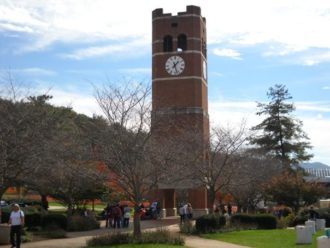
According to Western Carolina University’s COVID-19 dashboard, 17 students tested positive for the coronavirus on Oct. 12. Brevard College announced Oct. 10 that all classes would shift to remote learning for the week of Oct. 12 after three COVID-19 cases were confirmed on one athletic team.

Less than a year after Antony Chiang arrived in Asheville to lead the newly formed Dogwood Health Trust, he’s left the foundation — and despite repeated attempts, Xpress has yet to learn why.

Move over, police, protests and the pandemic: At Asheville City Council’s meeting of Tuesday, Oct. 13, the focus shifts to development (at least according to the agenda).

The N.C. Department of Health and Human Services reported 2,428 new cases of COVID-19 on Oct. 8, the highest count since July 30. Hospitalizations are the highest they’ve been all month, and in Buncombe County, viral spread is somewhat higher.

Five staff members at Oakley Elementary School have tested positive for COVID-19, becoming the school district’s first coronavirus cluster. Plus, North Carolina’s COVID-19 metrics are moving in the wrong direction, says Gov. Roy Cooper.
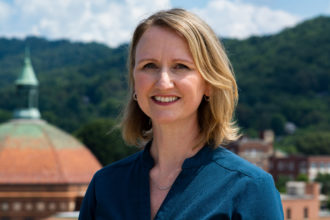
Stacie Saunders joined the Buncombe County Health Department in August to lead the county’s COVID-19 response. Nearly two months into her role as public health director, she reflects on the pandemic and her plans for the department.

Under Gov. Roy Cooper’s new executive order, bars, movie theaters, small outdoor entertainment venues, conference centers and amusement parks can operate at 30% of capacity or 100 seated guests, whichever is less.